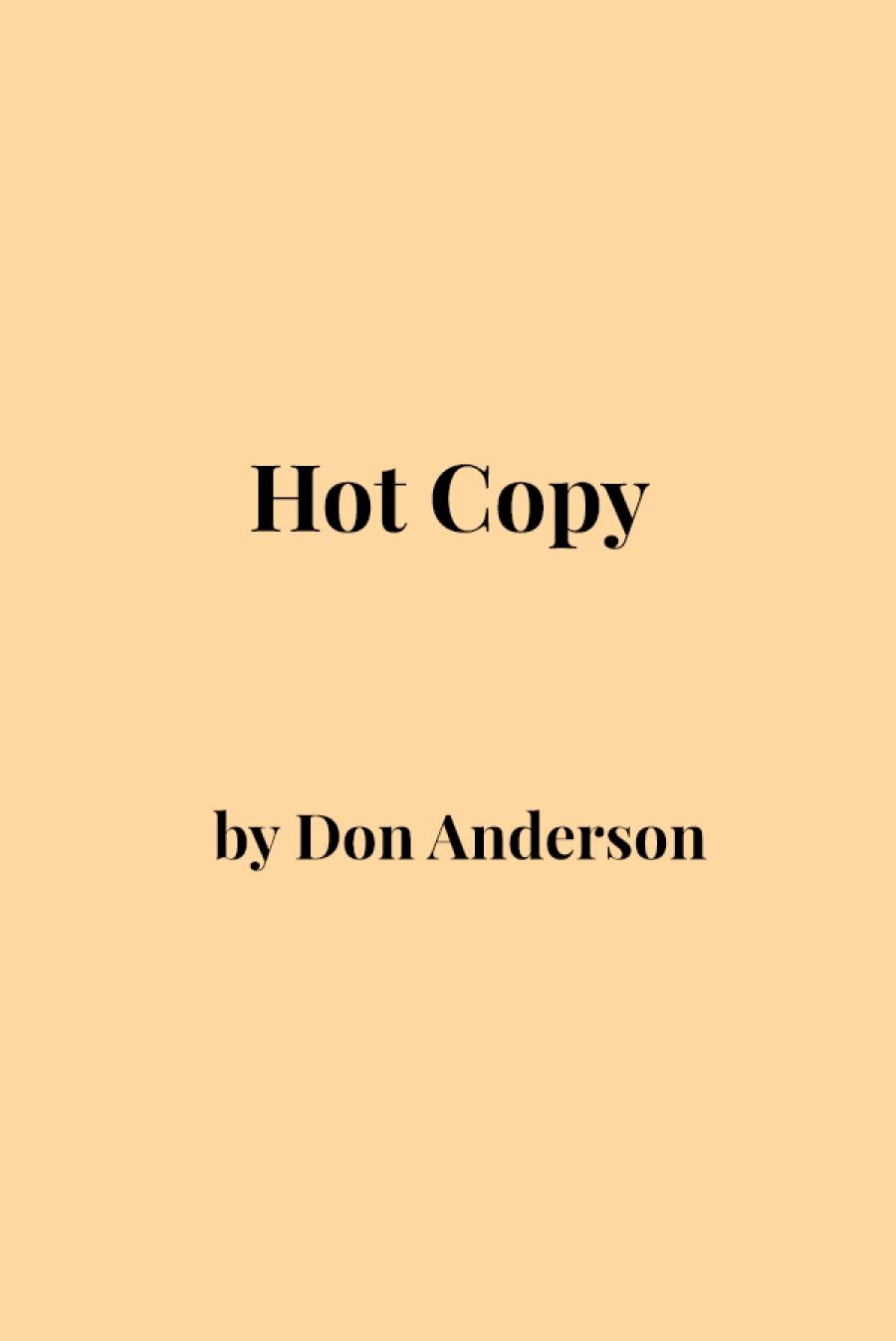
- Free Article: No
- Contents Category: Literary Studies
- Review Article: Yes
- Online Only: No
- Custom Highlight Text:
From the enlightenment to post-modernity, there has been one common rallying cry: ‘This is the age of criticism.’ Religious authority, natural rights and philosophical dogmatism have all been under critique for so long that criticism has almost come to seem natural, authoritative and is in danger of hardening into dogma. Little surprise, then, that outside the academy the word ‘criticism’ is seldom linked with the venerable discourse of theology, politics and philosophy but rather with a comparatively recent and fluid phenomenon: Literature.
- Book 1 Title: Hot Copy
- Book 1 Subtitle: Reading and writing now
- Book 1 Biblio: Penguin, 224 pp, $11.95 pb
A review by Don Anderson is one of these exceptions, and this gathering of his reviews is certainly an exceptional book. Unlike the academic article, the review always answers to an occasion – an unfamiliar book has to be considered, very briefly and at short, notice, for a particular publication – and a selection of fifteen years’ reviews is a fair indication of agility, catholicity and nerve. Anderson has all three in abundance. It’s a rare, all too rare, thing to have someone who can review, with equal pungency and equal commitment, both Australian and European literature. It’s rare, too, to find someone who can discuss with felicity not only realism but also fabulism; someone who can find a great deal to admire in Roland Barthes yet who is willing and able to condemn the obscurantism of Jean Baudrillard. But what is most rare (and its no backhanded compliment) is that Anderson has somehow managed to do this in English, which is lively, stylish, perfectly clear yet has been published in Australian newspapers.
One could make the point in two ways: by listing the papers for which Anderson has and those for which he has not reviewed. My diplomatic nature inclines me to follow the first path. It turns out that there are only two places in which Anderson has reviewed consistently and in which, interestingly enough, one finds his best pieces: the National Times and the ABC’s Books and Writing in its heyday with Martin Harrison, Now there are other places which publish or broadcast good reviews – the Age Monthly Review, Island, Scripsi, the ABC’s First Edition and, on the occasions when it appears, Helix – but notice that I haven’t mentioned any of the daily papers with literary pages. True, Anderson has written for the Sydney Morning Herald and even for The Age (though not anything that’s reprinted here); put, really, all our weekend papers want is a Newspeak plot summary. Poetry tends to suffer
most. Neither high nor popular culture is promoted when six or more books of poetry are reviewed in under five-hundred words, as happens all too frequently. Perhaps this is why Anderson prefers to review prose.
Hot Copy is not simply a collection of reviews, however. Although Penguin seems to have gone out of its way to make the contents page unreadable, it is just possible to make but that there is a Coda with a substantial essay ‘Can Literature be Taught?’ and, towards the end of the Australian section, several sustained ‘pieces on contemporary Australian writers: Frank Moorhouse, Christina Stead, and Patrick White. These are all of interest, but the most perplexing is the essay on the teaching of literature. The essay is a dialogue with Murray Bail and is confined to the question whether literature can be taught in universities. After all, literature might be able to be taught by writers, by parents, by sages, the mad, or by ordinary people themselves. But none of these groups get paid to profess literature while those employed by universities receive monthly salaries. (But why, one wonders, does Bail single out the university? Many more people are taught literature at colleges, institutes, and adult education centres. Are there no problems here?)
Well, do we earn our money? And if so, do we earn it for the right reason? Anderson answers yes and no: strictly speaking, we fail to teach literature, but we try to teach literary criticism. This is surely right, if only because ‘literature’ is not an object which can even be circumscribed by a particular privileged group, let alone administered and taught by one. What we teach (or in my view should teach) is the endlessly elusive series of processes which go under that mild description ‘reading’. Whatever else it is, the study of literature is the study of how literature resists the categories of the understanding, our oldest assurances and our latest theories. Anderson ends his essay and his book by meditating upon what he sees as a crisis in English studies; and in particular he objects to the increasingly common view that ‘Reading is no longer possible’. Teaching literature is hard enough, Anderson tells us, without our undergraduates being told that the subject they have chosen to study is no longer possible.
All this is true. Teaching literature is demanding and is getting more and more so as large-scale cultural changes, which can hardly be resisted by academics, erase anything resembling even a rudimentary knowledge of the Bible and Classical literature, not to mention English grammar. But Anderson is dealing with a straw man: it is not that reading is no longer possible but rather that reading was never possible. Not even the greatest readers –Samuel Johnson, S.T. Coleridge, and Charles Lamb – have ever been able to recover the determinant meaning of a text; and for a very good reason, because the task is structurally impossible. The crisis in English studies is not precipitated by the slow fading of humanist values but rather by the realisation that the study literature has no natural connection with those values. The crisis is built into criticism.


Comments powered by CComment